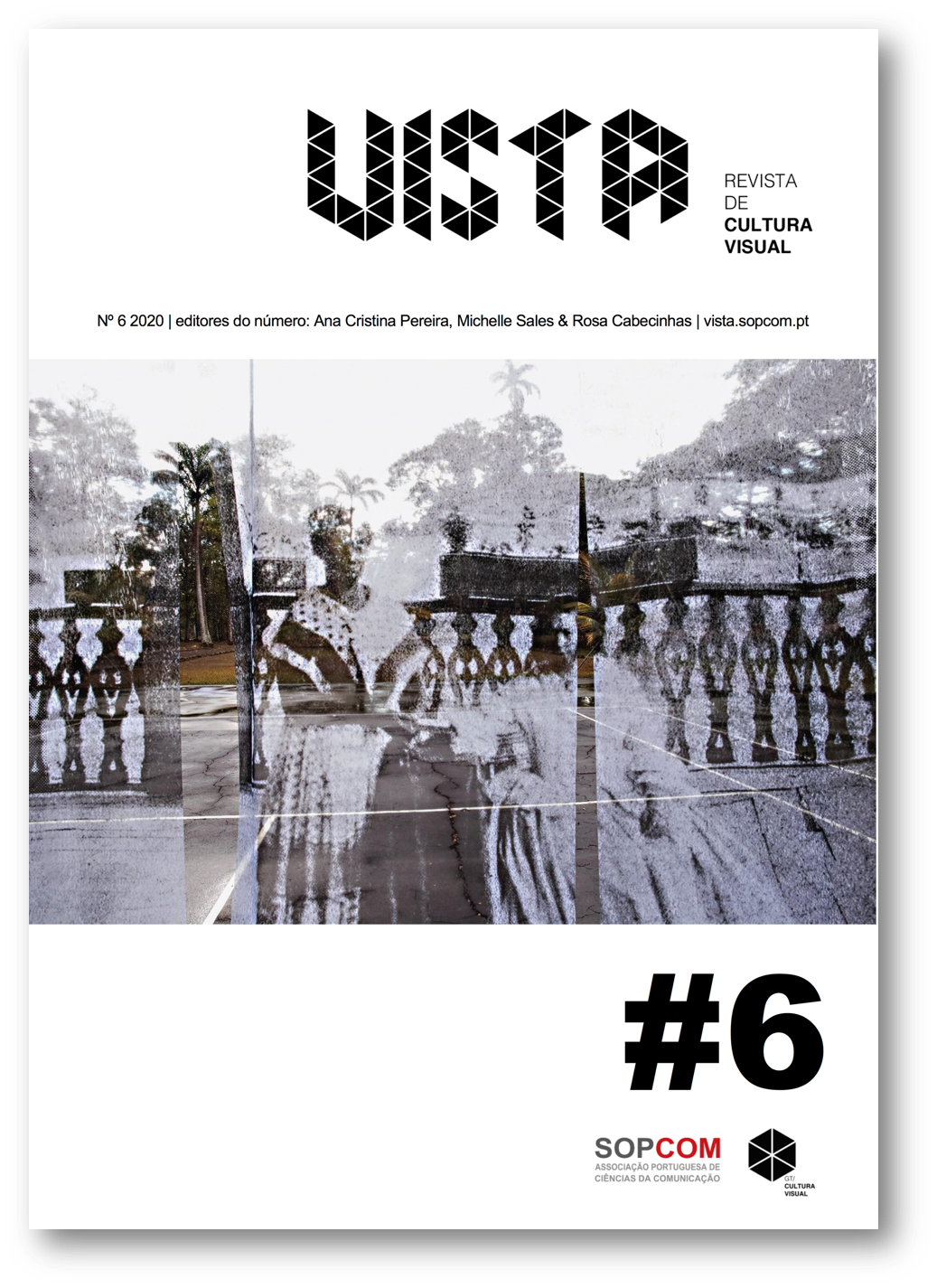O Agora de Outrora: o cinema de Silas Tiny
DOI:
https://doi.org/10.21814/vista.3067Keywords:
Critical theory, Film, Postcolonialism, Silas TinyAbstract
This article analyzes the work of documentary filmmaker Silas Tiny, born in São Tomé and Príncipe, highlighting its importance in the way it critically examines the period of Portuguese colonial power over African regions that freed themselves from this domination after April 25, 1974. The main argument that emerges from the analysis of his two feature films is that his documentary cinema is built from dialectical images, in the sense given to it by Walter Benjamin and his critical thinking. The question that occupies Tiny is that of overcoming the temporal relationship between past and present by a dialectical relationship between what was (the former) and what is (the now). Bafatá, in Guinea-Bissau, is filmed by the director in Bafatá Filme Clube (2012) as a ghost town, populated by specters and apparitions of the dead in a place on the verge of extinction. Film is thus taken as a spectral art that links the present to the past, uniting memory and ruin. In the following work, O Canto do Ossobó (2017), Tiny tackles his personal roots. It is, simultaneously, a reunion with São Tomé and an encounter with its history — or perhaps it is an encounter with that place and a reunion with its history. This film aims at discovering and preserving reminiscences, that which resembles the past, that which can keep it in memory, but always in an incomplete and indefinite way.
Downloads
References
Arenas, F. (2017). The Filmography of Guinea-Bissau’s Sana Na N’Hada: From the Return of Amílcar Cabral to the Threat of Global Drug Trafficking. Portuguese Literary & Cultural Studies, 30/31, 68-94. Consultado em: https://ojs.lib.umassd.edu/index.php/plcs/article/view/PLCS30_31_Arenas_page68/122 3
Benjamin, W. (2019). As Passagens de Paris. Lisboa, Portugal: Assírio & Alvim.
CEI-IUL. (2018). 18 OUT | Activisms in Docs: O Canto de Ossobó. Changing World, 18 Out. Consultado em: https://blog.cei.iscte-iul.pt/18-out-activisms-in-docs-o-canto-de- ossobo.
Cunha, P. (2015). Cinema de Garagem: Distribuição e Exibição de Cinema em Portugal. In F. Lopes, P. Cunha, e M. Penafria (Eds.), Cinema em Portugu s: VII Jornadas (pp. 117-137). Covilhã, Portugal: Editora LabCom.IFP.
Sales, M. (2019). Cinema Negro Português. In A. Costa Valente (Ed.), Avanca |Cinema 2019 (pp. 325-329). Avanca: Edições Cine-Clube de Avanca.
Tiny, S. (2019). Entrevista. In doclisboa’17 / Projecto Educativo (p. 16). Lisboa, Portugal: Apordoc – Associação pelo Documentário, 2017. Consultado em: http://www.doclisboa.org/2017/wp-content/uploads/dossier-projecto-educativo.pdf.
Tiny, S. (Realizador). (2012). Bafatá Filme Clube [Filme]. Portugal: Real Ficção. Tiny, S. (Realizador). (2017). O Canto do Ossobó (Filme). Portugal: Real Ficção.
Downloads
Published
How to Cite
Issue
Section
License

This work is licensed under a Creative Commons Attribution 4.0 International License.
Authors own the copyright, providing the journal with the right of first publication. The work is licensed under a Creative Commons Attribution 4.0 International License.













